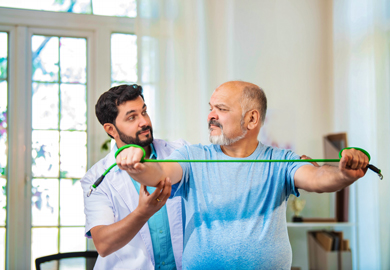You should consult an orthopedic specialist if you experience:
- Persistent or severe knee pain that interferes with daily activities
- Swelling and stiffness in the knee joint
- Difficulty climbing stairs, walking, or standing for long periods
- Knee pain that worsens at night or during rest
- Limited range of motion despite physiotherapy and medications
- Deformity in the knee joint or bowing of the legs
Seeking timely medical attention helps prevent worsening of the condition and ensures better treatment outcomes.
You should consult an orthopedic specialist if you experience:
- Persistent or severe knee pain that interferes with daily activities
- Swelling and stiffness in the knee joint
- Difficulty climbing stairs, walking, or standing for long periods
- Knee pain that worsens at night or during rest
- Limited range of motion despite physiotherapy and medications
- Deformity in the knee joint or bowing of the legs
Seeking timely medical attention helps prevent worsening of the condition and ensures better treatment outcomes.















.svg)









